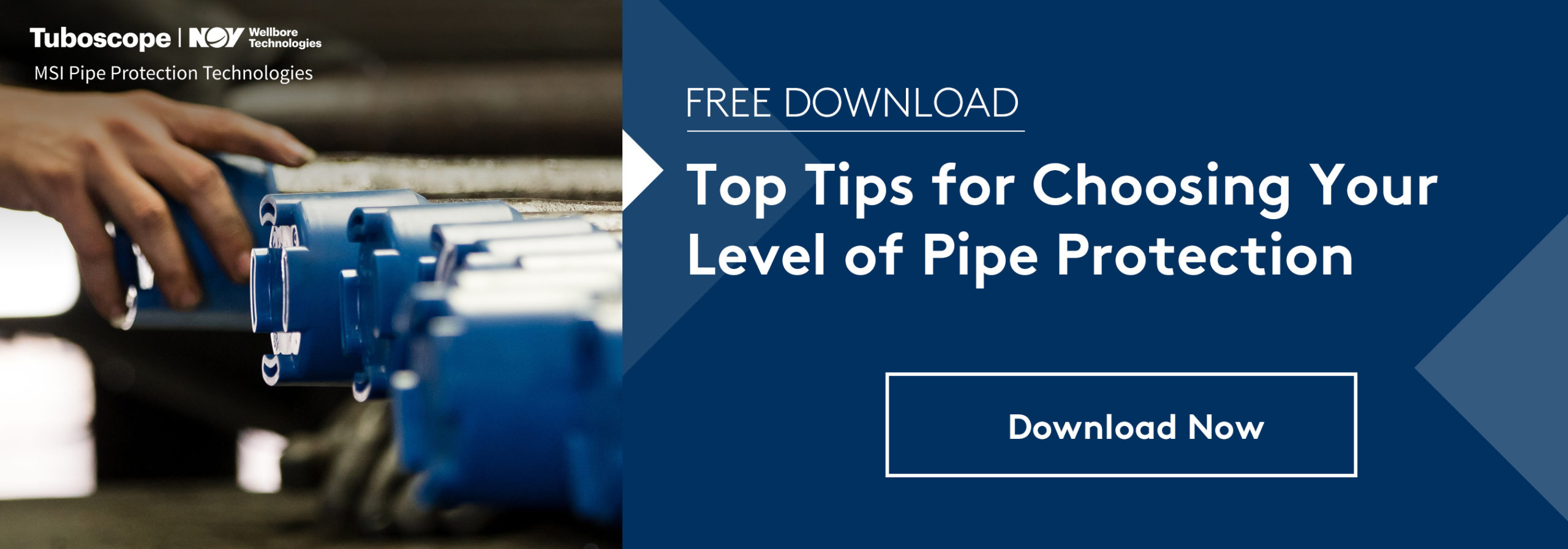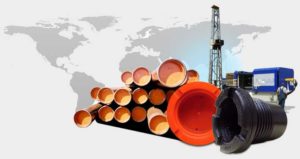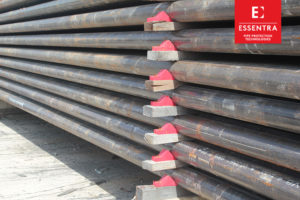Rising economic pressure on the oil and gas industry will require operators to revisit their market outlooks over the short and medium-term. OPEC’s revised industry outlook (released in November 2019) indicated that the energy sector continues to face “challenging” times as growth will slow from 1.4 million b/d to 0.5 million b/d by the end of the next decade. This will make protecting vital Oil Country Tubular Goods (OCTG), pipe threads, and other critical infrastructures of greater importance in the future.
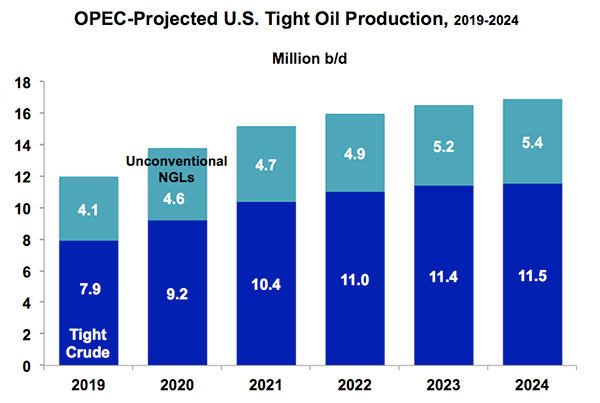
Data Source: Forbes
The EIA reported similar expectations but did forecast production growth in the U.S. with an average of 13.3 million b/d for 2020 and 13.7 million b/d by 2021. Considering the Drilled but Uncompleted (DUC) wells reduced in 2019 from 8,429 to 7,574, it indicates a change in focus from exploration to production for U.S. operators. Therefore, maintaining available OCTG with proper protective devices can alleviate some of the economic pressures facing operators.
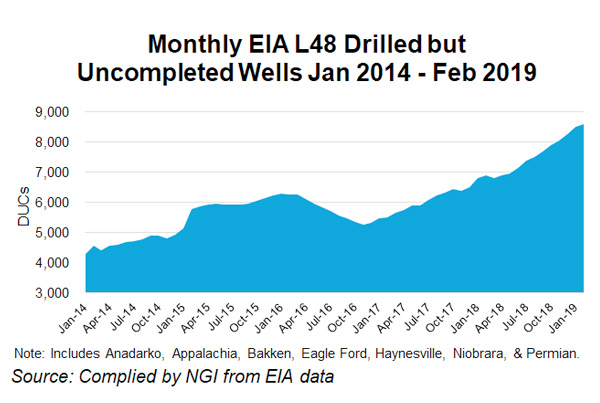
Data Source: NGI Shale Daily
5 Most Important Considerations for Protecting Pipe Threads and OCTG Integrity
As volatile demand growth around the world continues to plague operators, they will need to make every effort to reduce the costs of production and completions on new rigs. The offshore industry will face additional pressure compared to their onshore counterparts. The EIA does report that due to new legislation (such as Annex XI from the MARPOL Convention), there will be an increase of 3% in U.S. refinery utilization.
Across the board, all stakeholders will have to deal with reduced CAPEX, decreased demand growth, and increased competition from other energy sources. Ensuring the integrity of all equipment during every phase of production can help operators navigate the turbulent waters ahead.
1. What Do Pipe Threads Need Protection From?
When connecting any section of pipe to another, thread engagement will determine the strength and seal quality of the string. The thread profile and pipe specification will determine the axial loading that a specific section can handle. To ensure every connection works optimally, pipe thread protectors can reduce the risk of a compromised thread profile.
The types of elements that pipe threads need protection from include:
-
- Corrosion and rust when exposed to the elements
- Debris and moisture
- Contaminants that could reduce the quality of the extracted fluids
- Damages like scratches, dents, cracks, and dings
Corrosion particularly presents a problem for operators, as it may not be easily visible before installation. Contaminants and moisture in the thread may increase the speed of oxidation, leading to a compromised thread profile. Any damaged thread will likely also accelerate the corrosive chemical reactions in the connection during operations.
2. When to Protect Pipe Threads?
To optimize all oilfield operations, various pipe threads require protection during every stage of the production process prior to installation. Whenever operators pull a string for inspection or repairs, they need to apply thread protection to every section before stacking and storing them. Due to the harsh chemical conditions under which pipes operate, exposure to oxygen can increase the rate of corrosion.
For new wells, the pipe threads need protectors during storage, handling, and transport. This not only prevents corrosion and oxidization but also reduces the risk of damaging a thread before it’s installed.
Want to learn more about when to protect pipe threads?
Check out these articles from MSI that discuss protecting your investments during the entire process, as well as in every season. Click below to discover more.
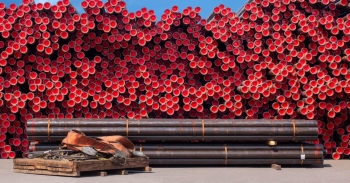
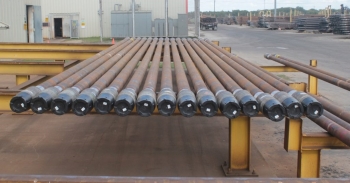
3. Why is Thread Protection so Vital to Operations?
A single compromised thread can lead to a catastrophic failure in the downhole. At best, this will cause production stoppages while operators carry out costly repairs. In a worst-case scenario, it could cause a well collapse that makes the rig no longer viable. A single failure can cost an operator anywhere between $70,000 and $200,000 per well.
Operators need to take measures to reduce the failure rates, frequency, production losses, and downtimes caused by corrosion. Using pipe thread protectors can help operators to reduce the likelihood of a connection failure leading to expensive workover or shutting down a productive well entirely.
Benefits of pipe thread protection for oilfield operations include:
-
- Improved operational efficiency
- Occupational safety of staff during operations
- Reduced environmental risks
- Optimal performance of OCTG during production
- Increased lifespan on OCTG investments
Under the continued economic pressure that producers will face, maintaining the integrity of existing operations will be vital to their future success. Protecting the quality of pipe threads improves the safety of staff, the environment, and the sustainability of operations.
4. How do Operators Protect Pipe Threads?
To maintain the integrity of pipe threads, operators need to utilize high-quality protection equipment. Thread protectors for drill and line pipes, perforating guns, and sucker rods caps will help improve the efficiency of operations.
Whenever staff handles pipes, they should make use of lifting bails and store sections securely with tubular handling systems. For added protection, operators need to apply bumper rings and secure OCTG with pipe chocks during storage, handling, and transport. Producers can improve their operations by adopting a comprehensive pipe and thread protection strategy.
5. Who Provides High-Quality Pipe Protection Equipment?
Before producers select a supplier for their pipe thread protection equipment, they’ll need to look for a quality manufacturer that can accommodate all of their needs. For operators to ensure they receive the highest quality equipment, they should also investigate the manufacturing processes employed by the supplier.
Connect with MSI Pipe Protection Technologies
We have served the oil and gas sector with innovative protection equipment for more than 30 years. With both Premium and API 5CT standard thread protectors, MSI can help operators maintain operational efficiency even in challenging current economic climate.
Likewise, we are happy to provide a wide range of thread protection products for any type of pipe and can assist producers with custom designs. As an industry leader in oil and gas protection equipment and technologies, MSI will work with operators to develop a complete, end-to-end pipe protection strategy. Contact us to learn more.
And for immediate assistance regarding the importance of protecting pipe threads, call us to discuss your operation’s exact requirements. Speak with one of our experts toll-free today, at 877-276-9208.

